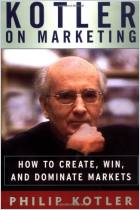
Marketing Accountability
How to Measure Marketing Effectiveness
Recommendation
Forget the past; marketing managers are now accountable for the financial and sales results they achieve with the money they spend. They can claim – with the backing of some marketing professors – that too many factors in the sales and marketing orbit are out of their control: the economy, fickle consumers, onerous competition, balky delivery problems, murky customer service, and so on. True, all of these real-life happenstances can undermine clever ads and promotions. Even so, corporate executives are no longer willing to give marketing a pass on accountability. Professor Malcolm McDonald and marketing measurement expert Peter Mouncey offer a useful solution: a layered evaluation system that firms can apply to align their marketing activities with their strategies and financial results. The authors provide metrics and tactics marketers can rely on to substantiate the impact of their work. The book is pretty technical, but its clear, two-color layout helps make its charts and graphs more accessible. getAbstract recommends it most warmly to marketers who already have some analytical expertise.
Summary
About the Authors
Malcolm McDonald, Emeritus Professor at Cranfield University School of Management, is an international marketing consultant. Peter Mouncey, director of the Cranfield Marketing Measurement and Accountability Forum, is a marketing education consultant.


















Comment on this summary or Comenzar discusión